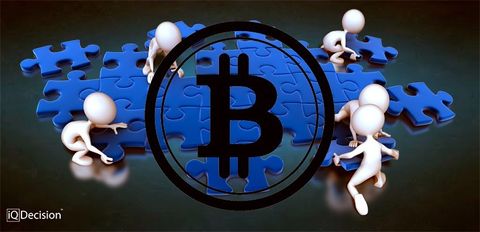A cryptocurrency has a number of attributes which help the regulators of cryptocassets in Japan conclude whether it falls within a specific country’s jurisdiction. The main ones are defined in the updated versions of Articles I and V of the Payment Services Act.
Investing in Cryptocurrencies: Do Investors Get Classified or Dealt With Differently?
As per the FIAE, investors get classified according to several different categories, of which the two most common ones are general (pretty self-explanatory) and specified (which stands for extensively experienced investors). The remaining two are called QIIs and non-QIIs. The former include banks and insurance companies, while the latter can include:
- all kinds of governments;
- companies with statutory funds in excess of € 430 900;
- individuals prepared to invest a minimum of € 863 700;
- all kinds of funds, including pension ones that are prepared to invest a minimum of € 86 million.
ICO in Japan - Rules and Limitations Governing Investors
Investing in securities in Japan is governed by several different pieces of legislation. Initial Coin Offering in Japan (not to be confused with STO, which stands for Securities Token Offering in Japan) is governed by the FIEA. Tokens are also identified as cryptocurrencies by the PSA. They are generally believed to be cryptocurrencies if:
- they get traded on cryptocurrency exchanges overseas;
- there’s no existing market for them or if there’re formidable limitations imposed by exchanges on crypto (or fiat) currencies.
The JVCEA’s (or the Japanese Virtual Currency Exchange Association) rules are also applicable to investment in ICOs in Japan.
Looking for legal advice pertaining to the investment activities in Japan? Our consultants will provide you with all the information you need!
STOs - Regulations and Limitations
The previously published versions of the PSA didn’t explicitly specify STOs. Therefore, the FSA decided to rectify the situation by making an announcement that ICOs get regulated by the PSA. It also states that if a token is purchased with a cryptocurrency, it is then deemed to be a legal tender and thus regulated by the FIEA.
The updated PSA and FIEA state abundantly clear that it is the FIEA that regulates securities token offerings .
All business operators trading in financial instruments and wishing to solicit a securities token offering are required to apply for a special license called Type 1 License. Issuers engaging in self-offering are expected to obtain another type of license called Type 2 License. Thus, conducting STOs in Japan is tightly regulated and can only be done by properly authorised entities. And to be eligible for one, potential traders need to get a Japanese license of a financial services operator.
Seeking advice on the investment regulations of cryptoassets in Japan? Just give us a call and we’ll get you covered!
According to the Financial Services Agency, stablecoins tied to fiat currencies are not deemed cryptocurrencies as per the Payment Services Act. For instance, they can be considered PPIs if they possess certain characteristics, such as proprietary value, issuance for a fixed price, and payment for/receipt of products or services.
Trading Limitations
Investors are prohibited from trading cryptocurrencies with anyone except for registered cryptocurrency exchanges. They are also forbidden to engage in the trading of security tokens (the so called ERTRs or electronically recorded transferable rights) with anyone except for the holders of Type 1 license.
Need help with establishing a cryptocurrency exchange in Japan? Wondering how to register a cryptocurrency exchange in Japan? Our specialists will provide you with all the answers you need!
Are There Any Differences Between Crowdfunding Investment and Cryptocurrency Offerings?
According to the FIEA, crowdfunding investment is exempt from filing a registration statement unless the sum of solicitation is in excess of 100 million yens. Under the FIEA, obtaining an electronic solicitation service provider license requires crowdfunding platformers to pay only a small fee.
The amended version of the FIEA contains an identical regulation pertaining to ERTRs (or electronically recorded transferable rights).










